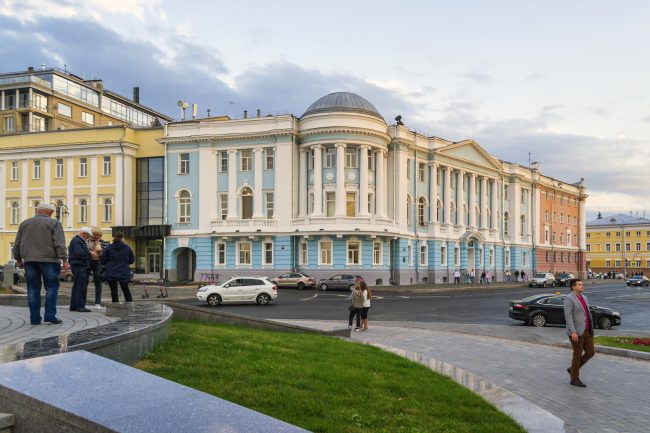
Russia is a popular destination for medical education among international students, particularly Indian students. The country has a long tradition of excellence in medical education, and its medical universities are known for their high standards and cutting-edge facilities.
In addition, the cost of studying medicine in Russia is relatively low compared to other countries, making it an attractive option for students who want to pursue their dreams of becoming a doctor without breaking the bank.
The duration of the MBBS course in Russia is 6 years, which includes 5 years of theoretical and practical training, followed by a 1-year internship. The language of instruction is predominantly Russian, but some universities offer courses in English as well.
Indian students are advised to learn the Russian language to make the most of their academic experience and communicate effectively with patients during their clinical practice.
Top 5 Medical Universities in Russia for Indian Students:
| University Name | Fees (per year) | Ranking | Duration | Brief Description |
| Bashkir State Medical University | $3,200 – $5,000 | Ranked 5th in Russia | 6 years | One of the oldest and most prestigious medical universities in Russia, offering undergraduate and postgraduate medical programs in general medicine, dentistry, pharmacy, and nursing. Located in Ufa, the capital of the Republic of Bashkortostan. |
| Kursk State Medical University | $4,000 – $5,000 | Ranked 4th in Russia | 6 years | A leading medical university in Russia, with a strong emphasis on practical training and access to some of the best clinical facilities in the country. Located in Kursk, about 450 kilometers southwest of Moscow. Offers undergraduate and postgraduate medical programs. |
| Pskov State Medical University | $3,000 – $4,500 | Ranked 35th in Russia | 6 years | One of the oldest medical universities in Russia, with a strong focus on research and innovation. Offers undergraduate and postgraduate medical programs in general medicine, dentistry, and pharmacy. Located in the city of Pskov, near the border with Estonia. |
| Orel State Medical University | $3,500 – $5,000 | Ranked 40th in Russia | 6 years | A leading medical university in the Central region of Russia, offering undergraduate and postgraduate medical programs in general medicine, dentistry, and pharmacy. Located in the city of Orel, about 350 kilometers southwest of Moscow. |
| Crimea Federal Medical University | $3,000 – $4,000 | Ranked 11th in Russia | 6 years | One of the oldest and most prestigious medical universities in Russia, with a modern campus and world-class facilities for practical training. Offers undergraduate and postgraduate medical programs in general medicine, dentistry, and pharmacy. Located in Simferopol. |
Note: The fees mentioned are approximate and may vary depending on the currency exchange rate and the university’s regulations.
Important FAQ
- Is it safe to study medicine in Russia as an international student?
Yes, it is generally safe to study medicine in Russia as an international student. Russian universities take the safety and security of their students very seriously, and many of them have dedicated international student support services to assist with any issues or concerns.
- Are the medical degrees obtained in Russia recognized internationally?
Yes, the medical degrees obtained from recognized medical universities in Russia are recognized internationally. However, it is important to ensure that the university you choose is recognized by the medical council or governing body of the country in which you plan to practice medicine.
- Can I work while studying medicine in Russia?
As an international student, you are allowed to work part-time for up to 20 hours per week while studying in Russia. However, it is important to note that your priority should be your studies, and that working too much could negatively impact your academic performance.
- What is the language of instruction for medical courses in Russia?
The language of instruction for medical courses in Russia is primarily Russian. However, many universities offer courses in English as well, especially for international students. It is important to check with the university before applying to see what language options are available for the specific medical program you are interested in.
Stay in the loop with our Health Blog – read, engage, and consider writing for us to contribute to the health conversation
